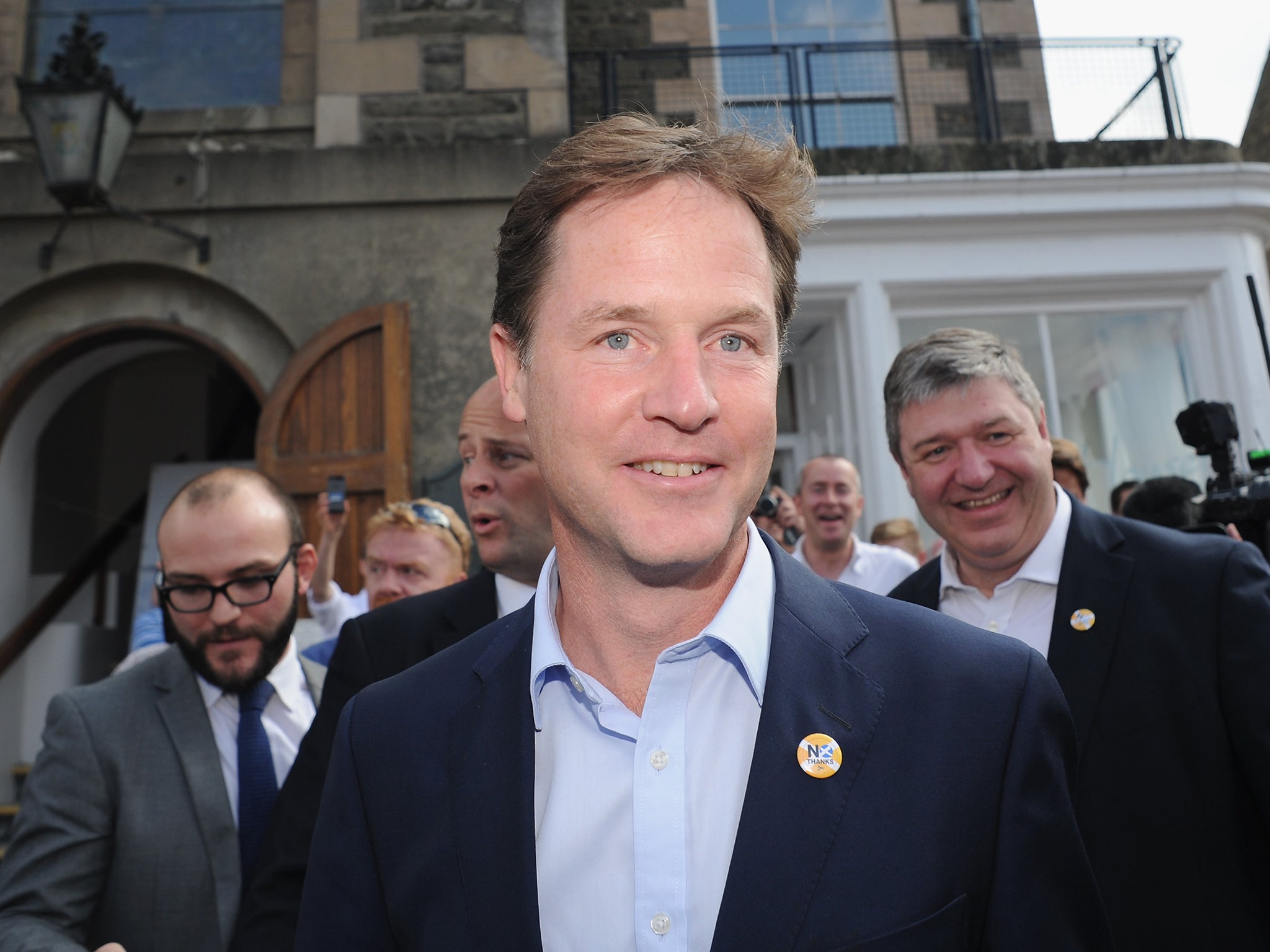Your support helps us to tell the story
From reproductive rights to climate change to Big Tech, The Independent is on the ground when the story is developing. Whether it's investigating the financials of Elon Musk's pro-Trump PAC or producing our latest documentary, 'The A Word', which shines a light on the American women fighting for reproductive rights, we know how important it is to parse out the facts from the messaging.
At such a critical moment in US history, we need reporters on the ground. Your donation allows us to keep sending journalists to speak to both sides of the story.
The Independent is trusted by Americans across the entire political spectrum. And unlike many other quality news outlets, we choose not to lock Americans out of our reporting and analysis with paywalls. We believe quality journalism should be available to everyone, paid for by those who can afford it.
Your support makes all the difference.Eight per cent. That, give or take a couple of percentage points, is the Liberal Democrats’ national poll rating, and the central political fact about them. Some two-thirds of the level of support they enjoyed in the 2010 election has evaporated.
Surveys in individual constituencies suggest a mixed picture, but there is plenty of evidence pointing to a parliamentary meltdown at the next election. Almost all the seats they hold against Labour are doomed. In the seats where they face the Tories, which are most of them, there are pockets of Lib Dem resistance, but things do not look promising for Nick Clegg.
It is deeply ironic that by putting David Cameron into No 10 the Lib Dems virtually destroyed their own standing, with the Tories being the greatest beneficiaries of their decline, and Ukip picking up much of the remainder of their protest vote. It is perfectly possible that the nation will wake up on the morning of 8 May 2015 to find that Ukip has more MPs than the Liberal Democrats. That would not be a good position for Britain to find itself in.
Of course, the Lib Dems are no strangers to dismal ratings and trailing fourth, or worse, in by-elections (as they may do in the forthcoming contests in Clacton and in Heywood). During a previous nadir, around 1989, they measured zero support in some surveys. Still, it is a heavy price for their participation in government, and being able to put their policies into effect for the first time in almost a century.
Indeed, gathering for their last conference before the election, the Lib Dems should take what comfort they can for having pushed some worthwhile measures on to the statute book, such as taking millions of the low paid out of income tax. Radical reform of pensions and schools are other far-reaching products of the Lib Dems’ time in power.
Then there are the “negative” achievements – preventing the Conservatives from being even more reckless over Europe or individual freedoms. Only yesterday we were reminded of the Tories’ unfathomable wish to scrap the Human Rights Act. Similarly, Lib Dem ministers have prevented Theresa May from adopting the so-called snooper’s charter.
There have also been some spectacular flops; electoral reform defeated in a referendum; the tuition fees fiasco; and the privatisation of Royal Mail by Vince Cable. But it was the very act of Coalition with the Conservatives that probably contributed most to the haemorrhage in their support and the feeling of betrayal that many former supporters feel. They now face a new challenge all too familiar to Labour and the Tories – how to reinvent yourself after a tough time in office.
Home Office minister Norman Baker’s attack on Tory party “vindictiveness” against the poor is the latest Lib Dem attempt to differentiate themselves from their Coalition partners. But they will need to tell the electorate what their “non-negotiables” are, the things they will not sacrifice. The uncomfortable truth is that Mr Clegg, for all that he has delivered real benefits for millions of families, is never going to sound credible in this regard. The Lib Dems may be destined to ride in the sidecar of another government, and that means it is impossible to guarantee that any promises made are carried out. If no majority is won, however, the same could be said of either the Tories or Labour – and Britain may well end up the better for it.

Join our commenting forum
Join thought-provoking conversations, follow other Independent readers and see their replies
Comments